| | Mathison Museum of Natural History |  |
|
+12landrover Kikimalou bmathison1972 Taos widukind Jill Duck-Anch-Amun lucky luke Caracal rogerpgvg Roger Bloodrayne 16 posters |
|
| Author | Message |
|---|
bmathison1972
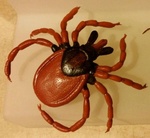
Country/State : Salt Lake City, UT
Age : 52
Joined : 2010-04-13
Posts : 6718
 |  Subject: Re: Mathison Museum of Natural History Subject: Re: Mathison Museum of Natural History  Sat Jul 27, 2024 1:08 pm Sat Jul 27, 2024 1:08 pm | |
| Species: Chlamydoselachus anguineus Garman, 1884 Common name(s): frilled shark About the Figure: Manufacturer: Bandai Series: Diversity of Life on Earth - Mini Ancient Fish Year of Production: 2022 Size/Scale: Body length approx. 10.5 cm for a scale of 1:12.9-1:19 Frequency of species in toy/figure form (at time of posting): Uncommon Miscellaneous Notes: Minimal assembly is required and the fish is removable from its base. About the Animal: Geographic distribution: Widespread in the Atlantic and Pacific Oceans Habitat: Bathydemersal; usually along the outer continental shelf and upper continental slope at depths of 0-1,570 meters (usual range 120-1,280 meters) Diet: Bony fish, other small sharks, cephalopods IUCN Status (at time of posting): Least Concern Miscellaneous Notes: Chlamydoselachus anguineus controls and maintains its buoyancy in deep waters with the aid of both its cartilaginous skeleton and a large liver filled with low-density lipids. [You must be registered and logged in to see this image.] |
|
  | |
widukind
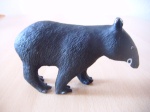
Country/State : Germany
Age : 48
Joined : 2010-12-30
Posts : 45779
 |  Subject: Re: Mathison Museum of Natural History Subject: Re: Mathison Museum of Natural History  Sat Jul 27, 2024 4:04 pm Sat Jul 27, 2024 4:04 pm | |
| |
|
  | |
bmathison1972

Country/State : Salt Lake City, UT
Age : 52
Joined : 2010-04-13
Posts : 6718
 |  Subject: Re: Mathison Museum of Natural History Subject: Re: Mathison Museum of Natural History  Sun Jul 28, 2024 1:16 pm Sun Jul 28, 2024 1:16 pm | |
| Species: Melopsittacus undulatus Gould, 1840 Common name(s): budgerigar; budgie; common parakeet About the Figure: Manufacturer: Furuta Series: Chocoegg Pet Series 1 Year of Production: 2001 Size/Scale: Body length (including tail feathers) approx. 6.5 cm for a scale of 1:2.8 Frequency of species in toy/figure form (at time of posting): Uncommon Miscellaneous Notes: Being on the of the original Chocoegg figures, some assembly is required. Furuta released this figure in three color forms, today's wild type and two domestic varieties, Blue and Lutino. In 2002, Kaiyodo reissued this sculpt (I believe it's the same sculpt) alongside Takara in the Choco Q Pet Series in two more domestic varieties, Yellow Harlequin and Rainbow. Using a new sculpt in 2003, Takara/Kaiyodo produced three budgie chicks in the Choco Q Pet Series in wild type, Blue Harlequin, and Lutino colors. About the Animal: Geographic distribution: Australia; introduced to many other parts of the world but only successfully naturalized in southern Florida, USA Habitat: Open woodland, open scrubland, grasslands, deserts Diet: Grass seeds, especially Triodia (spinifex), and occasionally wheat IUCN Status (at time of posting): Least Concern Miscellaneous Notes: Melopsittacus undulatus is a very popular, if not the most popular, species of parrot in the pet trade. They are small, playful, hardy, and easy to keep. Like many other Psittaciformes, they are capable of mimicking human speech. One individual budgie in America, Puck, who died in 1994, holds the world's record for the largest vocabulary of any bird, capable of mimicking 1,728 human words! [You must be registered and logged in to see this image.] |
|
  | |
widukind

Country/State : Germany
Age : 48
Joined : 2010-12-30
Posts : 45779
 |  Subject: Re: Mathison Museum of Natural History Subject: Re: Mathison Museum of Natural History  Sun Jul 28, 2024 1:38 pm Sun Jul 28, 2024 1:38 pm | |
| |
|
  | |
Taos

Country/State : W.Sussex,United Kingdom
Age : 58
Joined : 2010-10-03
Posts : 7514
 |  Subject: Re: Mathison Museum of Natural History Subject: Re: Mathison Museum of Natural History  Sun Jul 28, 2024 5:15 pm Sun Jul 28, 2024 5:15 pm | |
| |
|
  | |
bmathison1972

Country/State : Salt Lake City, UT
Age : 52
Joined : 2010-04-13
Posts : 6718
 |  Subject: Re: Mathison Museum of Natural History Subject: Re: Mathison Museum of Natural History  Mon Jul 29, 2024 1:36 pm Mon Jul 29, 2024 1:36 pm | |
| Species: Megabalanus rosa Pilsbry, 1916 Common name(s): rose barnacle About the Figure: Manufacturer: Kitan Club Series: Nature Techni Colour - Barnacles Year of Production: 2012 Size/Scale: Base approx. 4.0 cm across, within scale 1:1 Frequency of species in toy/figure form (at time of posting): Unique (as a pair) Miscellaneous Notes: These two figures are based on the same sculpt. One is a single, solid piece that is a pin that can be worn on clothing, backpacks, etc., and the other (inset) is cut in half to show the internal anatomy of the animal! The two pieces can be held together by an internal magnet. About the Animal: Geographic distribution: Indo-West Pacific Habitat: Intertidal and lower subtidal zones; usually attached to rocks or mollusk shells Diet: Filter feeder of plankton and detritus IUCN Status (at time of posting): Not Evaluated Miscellaneous Notes: Sessile marine organisms, such as barnacles, secrete proteinaceous adhesive holdfast to secure themselves while under water. Barnacles use various proteins called cement proteins (CPs). Megabalanus rosa uses five different cement proteins: MrCP100, MrCP68, MrCP52, MrCP20, and MrCP19 (the number represents the molecular weight of the protein in kilodaltons). [You must be registered and logged in to see this image.] |
|
  | |
widukind

Country/State : Germany
Age : 48
Joined : 2010-12-30
Posts : 45779
 |  Subject: Re: Mathison Museum of Natural History Subject: Re: Mathison Museum of Natural History  Mon Jul 29, 2024 1:54 pm Mon Jul 29, 2024 1:54 pm | |
| |
|
  | |
Jill

Country/State : USA
Age : 39
Joined : 2021-04-13
Posts : 2350
 |  Subject: Re: Mathison Museum of Natural History Subject: Re: Mathison Museum of Natural History  Mon Jul 29, 2024 8:35 pm Mon Jul 29, 2024 8:35 pm | |
| Wow the barnacle figure is really interesting, what a unique idea for a fashion pin, but clever, since that's sort of how they exist on things, ha . . .
That frilled shark figure is really cool and appropriately spooky looking. |
|
  | |
bmathison1972

Country/State : Salt Lake City, UT
Age : 52
Joined : 2010-04-13
Posts : 6718
 |  Subject: Re: Mathison Museum of Natural History Subject: Re: Mathison Museum of Natural History  Tue Jul 30, 2024 1:02 pm Tue Jul 30, 2024 1:02 pm | |
| Species: Poroderma africanum (Gmelin, 1789) Common name(s): pyjama shark; striped catshark About the Figure: Manufacturer: Discovery Communications Series: Return to the Isle of Jaws Year of Production: 2018 Size/Scale: Body length approximately 10.7 cm for a scale of 1:6.1-1:9.3 Frequency of species in toy/figure form (at time of posting): Unique Miscellaneous Notes: Like many shark figures, this one suffers from too few gill slits (only 3; should be 5). About the Animal: Geographic distribution: Coastal South Africa Habitat: Intertidal zone, often among rocky reefs and kelp beds; at depths of 0-100 meters Diet: Small body fish, small sharks and rays, benthic invertebrates IUCN Status (at time of posting): Least Concern Miscellaneous Notes: Poroderma africanum is popular in public aquaria owing to its small size, colorful appearance, docile nature, and relative ease of care. [You must be registered and logged in to see this image.] |
|
  | |
bmathison1972

Country/State : Salt Lake City, UT
Age : 52
Joined : 2010-04-13
Posts : 6718
 |  Subject: Re: Mathison Museum of Natural History Subject: Re: Mathison Museum of Natural History  Wed Jul 31, 2024 12:42 pm Wed Jul 31, 2024 12:42 pm | |
| Species: Prosopocoilus hasterti (Boileau, 1912) About the Figure: Manufacturer: DeAgostini Series: World Insect Data Book Year of Production: unknown Size/Scale: Body length (including mandibles) approx. 5.8 cm, within scale 1:1 Frequency of species in toy/figure form (at time of posting): Very rare Miscellaneous Notes: This is the second time we've seen P. hasterti in the Museum. Based on the color of the elytra, today's figure appears to have been painted to represent the subspecies P. h. moinieri (see below). The DeAgostini insects are believed to have been cast from actual specimens and are therefore all in the 1:1 range. The figures were sold as premiums with books and come in a plastic display box with their Latin and Japanese names. I am not sure what year the figures were released, and it is possible they were released over multiple years. The original set from Japan consisted of 60 species (59 male Scarabaeoidea and one dragonfly), plus four 'secret' figures representing females of select scarab males. When the set was released in Italy, three of the standard set were replaced with other species, including a leaf insect. Between the two releases and secrets, I think there are 67 figures total representing 63 species. The figures are secured to the base of the box with a small screw, but can be safely removed if one choses to display them outside of the box. About the Animal: Geographic distribution: Solomon Islands Habitat: Broadleaf forests Diet: Larvae develop in rotting wood; adults feed on tree sap IUCN Status (at time of posting): Not Evaluated Miscellaneous Notes: I had a hard time researching information on this species, and some of the biological information above is inferred from other species in the genus. From what I can tell, there are two subspecies of P. hasterti, both endemic to the Solomon Islands: the nominate P. h. hasteri, which occurs on Bougainville Island (which is politically part of Papua New Guinea), and P. h. moinieri, which occurs on Malaita. [You must be registered and logged in to see this image.] |
|
  | |
bmathison1972

Country/State : Salt Lake City, UT
Age : 52
Joined : 2010-04-13
Posts : 6718
 |  Subject: Re: Mathison Museum of Natural History Subject: Re: Mathison Museum of Natural History  Thu Aug 01, 2024 1:29 pm Thu Aug 01, 2024 1:29 pm | |
| Species: Moloch horridus Gray, 1841 Common name(s): thorny devil; thorny dragon; moloch About the Figure: Manufacturer: CollectA Series: Little Wonders Year of Production: 2016 Size/Scale: Snout-to-vent length approx. 7.0 cm for a scale of 1:1.1-1:1.6 Frequency of species in toy/figure form (at time of posting): Uncommon Miscellaneous Notes: This figure can easily scale 1:1 for a smaller specimen. About the Animal: Geographic distribution: Central and Western Australia Habitat: Sandridge deserts, sandplains, scrubland, mallee belt; usually in areas with sandy or sandy loam soils Diet: Ants IUCN Status (at time of posting): Least Concern Miscellaneous Notes: In addition to providing camouflage and defense against would-be predators, the texture of the skin of M. horridus is used for water acquisition. Grooves at the base of the spine collect water, either groundwater or dew, and via capillary movement, channel the water onto the head and empty into the angle of the mouth for drinking. [You must be registered and logged in to see this image.] |
|
  | |
widukind

Country/State : Germany
Age : 48
Joined : 2010-12-30
Posts : 45779
 |  Subject: Re: Mathison Museum of Natural History Subject: Re: Mathison Museum of Natural History  Thu Aug 01, 2024 6:14 pm Thu Aug 01, 2024 6:14 pm | |
| |
|
  | |
rogerpgvg
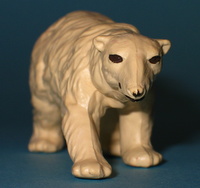
Country/State : UK
Age : 54
Joined : 2016-04-29
Posts : 3897
 |  Subject: Re: Mathison Museum of Natural History Subject: Re: Mathison Museum of Natural History  Thu Aug 01, 2024 7:01 pm Thu Aug 01, 2024 7:01 pm | |
| Interesting drinking method. |
|
  | |
Kikimalou
Admin
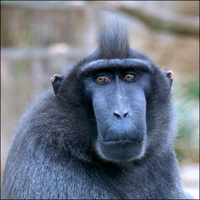
Country/State : Lille, FRANCE
Age : 60
Joined : 2010-04-01
Posts : 21190
 |  Subject: Re: Mathison Museum of Natural History Subject: Re: Mathison Museum of Natural History  Thu Aug 01, 2024 7:41 pm Thu Aug 01, 2024 7:41 pm | |
| I agree  |
|
  | |
rogerpgvg

Country/State : UK
Age : 54
Joined : 2016-04-29
Posts : 3897
 |  Subject: Re: Mathison Museum of Natural History Subject: Re: Mathison Museum of Natural History  Thu Aug 01, 2024 9:09 pm Thu Aug 01, 2024 9:09 pm | |
| |
|
  | |
bmathison1972

Country/State : Salt Lake City, UT
Age : 52
Joined : 2010-04-13
Posts : 6718
 |  Subject: Re: Mathison Museum of Natural History Subject: Re: Mathison Museum of Natural History  Fri Aug 02, 2024 12:42 pm Fri Aug 02, 2024 12:42 pm | |
| Species: Phoebis philea (Linnaeus, 1763) Common name(s): orange-barred sulfur About the Figure: Manufacturer: Safari Ltd. Series: Hidden Kingdom Insects Year of Production: 2004 Size/Scale: Wingspan approx. 11.5 cm for a scale of 1.6:1-1.2:1 Frequency of species in toy/figure form (at time of posting): Uncommon Miscellaneous Notes: This is the third time we've seen Phoebis philea in the Museum, all by Safari. It was a go-to species for them for a while, having also been produced for the Authentics (1997), Collectors Case (2001), and Butterflies TOOB (2011) collections. This sculpt was also used for a Morpho peleides the same year (although the figure, in having six functional legs, is appropriate for the sulfur but not the morpho...). About the Animal: Geographic distribution: Southern United States (Texas, Florida) to Brazil Habitat: Open lowlands, forest edges, fields, parks, gardens, roadsides Diet: Larvae feed on legumes in the genera Cassia and Senna; adults feed on nectar from a variety of flowers IUCN Status (at time of posting): Not Evaluated (NatureServe status is Secure) Miscellaneous Notes: Phoebis philea is a specialist on legumes in the genera Cassia and Senna (the latter of which is sometimes considered a subgenus of the former). One of the butterfly's favorite host plants is S. alata, commonly known as candle bush or candelabra bush, which ranges from Mexico to Paraguay and the West Indies. [You must be registered and logged in to see this image.] |
|
  | |
widukind

Country/State : Germany
Age : 48
Joined : 2010-12-30
Posts : 45779
 |  Subject: Re: Mathison Museum of Natural History Subject: Re: Mathison Museum of Natural History  Fri Aug 02, 2024 2:15 pm Fri Aug 02, 2024 2:15 pm | |
| |
|
  | |
Joliezac
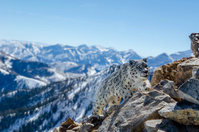
Country/State : New Jersey, USA
Age : 22
Joined : 2021-04-26
Posts : 2438
 |  Subject: Re: Mathison Museum of Natural History Subject: Re: Mathison Museum of Natural History  Fri Aug 02, 2024 2:46 pm Fri Aug 02, 2024 2:46 pm | |
| I have this butterfly too, it is beautiful. Nice outdoor pic! 
_________________
Jolie
Animal Ark Website
Animal Figure Photography Website
|
|
  | |
bmathison1972

Country/State : Salt Lake City, UT
Age : 52
Joined : 2010-04-13
Posts : 6718
 |  Subject: Re: Mathison Museum of Natural History Subject: Re: Mathison Museum of Natural History  Fri Aug 02, 2024 3:42 pm Fri Aug 02, 2024 3:42 pm | |
| - Joliezac wrote:
I have this butterfly too, it is beautiful. Nice outdoor pic!  Thanks! I took it outside my building at work LOL. Brought it to work with me as I wasn't sure what lighting would be like when I got home lol. |
|
  | |
bmathison1972

Country/State : Salt Lake City, UT
Age : 52
Joined : 2010-04-13
Posts : 6718
 |  Subject: Re: Mathison Museum of Natural History Subject: Re: Mathison Museum of Natural History  Sat Aug 03, 2024 1:36 pm Sat Aug 03, 2024 1:36 pm | |
| Species: Ibacus ciliatus (von Siebold, 1824) Common name(s): Japanese fan lobster About the Figure: Manufacturer: Takara Tomy A.R.T.S. Series: Primary Colour Crustaceans Book Year of Production: unknown Size/Scale: Body length (excluding appendages) approx. 4.8 cm for a scale of 1:4.8 Frequency of species in toy/figure form (at time of posting): Very rare Miscellaneous Notes: I cannot remember if assembly is required or not (most in the set were). If so, it was probably pretty minimal. Ibacus ciliatus was also produced by Epoch (year unknown, but probably early 2000s) and Bandai (2024). About the Animal: Geographic distribution: Northwest Pacific Habitat: Coastal waters; usually in areas with sandy or muddy substrates at depths of 49-314 meters Diet: Larvae feed on pelagic jellyfish; adults feed on algae and benthic invertebrates IUCN Status (at time of posting): Data Deficient Miscellaneous Notes: The larvae of I. ciliatus and other slipper lobsters are known as phyllosomas. The phyllosoma larva is planktonic and pelagic. These larvae are known to associate with jellyfish, which in some cases may serve as the sole food source for the phyllosomas. [You must be registered and logged in to see this image.] |
|
  | |
widukind

Country/State : Germany
Age : 48
Joined : 2010-12-30
Posts : 45779
 |  Subject: Re: Mathison Museum of Natural History Subject: Re: Mathison Museum of Natural History  Sun Aug 04, 2024 10:13 am Sun Aug 04, 2024 10:13 am | |
| |
|
  | |
bmathison1972

Country/State : Salt Lake City, UT
Age : 52
Joined : 2010-04-13
Posts : 6718
 |  Subject: Re: Mathison Museum of Natural History Subject: Re: Mathison Museum of Natural History  Sun Aug 04, 2024 1:02 pm Sun Aug 04, 2024 1:02 pm | |
| Species: Locusta migratoria (Linnaeus, 1758) Common name(s): migratory locust About the Figure: Manufacturer: 4D Master Series: Bug & Creature World Year of Production: 2004 Size/Scale: Body length (including wings) approx. 9.0 cm for a scale of 2.6:1-1.6:1 Frequency of species in toy/figure form (at time of posting): Uncommon Miscellaneous Notes: This is the fifth time we've seen L. migratoria in the Museum. This is a puzzle figure and comes in 21 pieces. According to the accompanying paperwork, you are a beginner if you can assemble it in 11 minutes, average in 8 minutes, and advanced in 6 minutes. About the Animal: Geographic distribution: Much of the Old World, including much of Africa (outside of the Sahara Desert), Europe, much of Asia, Japan, northern Australia, New Zealand Habitat: Highly variable, including lowland forests, river deltas, grasslands, deserts, disturbed areas, and agricultural fields; usually in open areas Diet: Grasses IUCN Status (at time of posting): Least Concern Miscellaneous Notes: Locusta migratoria is an edible insect. In 2021, the European Food Safety Agency published an opinion that the consumption of L. migratoria frozen, dried, or in a ground state is safe for human consumption. Later in 2021, the EU Commission authorized placing migratory locusts on the market as novel food. [You must be registered and logged in to see this image.] |
|
  | |
widukind

Country/State : Germany
Age : 48
Joined : 2010-12-30
Posts : 45779
 |  Subject: Re: Mathison Museum of Natural History Subject: Re: Mathison Museum of Natural History  Sun Aug 04, 2024 3:57 pm Sun Aug 04, 2024 3:57 pm | |
| |
|
  | |
bmathison1972

Country/State : Salt Lake City, UT
Age : 52
Joined : 2010-04-13
Posts : 6718
 |  Subject: Re: Mathison Museum of Natural History Subject: Re: Mathison Museum of Natural History  Mon Aug 05, 2024 1:16 pm Mon Aug 05, 2024 1:16 pm | |
| Species: Chaetodon lineolatus Cuvier, 1831 Common name(s): lined butterflyfish About the Figure: Manufacturer: Maia & Borges Series: Tropical Fish Year of Production: 2012 (2001) Size/Scale: Body length approx. 8.3 cm for a maximum scale of 1:3.6 Frequency of species in toy/figure form (at time of posting): Very rare (possibly unique as a sculpt) Miscellaneous Notes: Maia & Borges first produced this figure in 2001 for Schleich, and was retired after one year. Maia & Borges reissued it twice under their own brand. I am not sure of the first time, but it was probably in 2002 or 2003 after Schleich retired their model. My version is from a 2012 release. In some ways, I prefer the paint on the original Schleich. For example, the lunula on the back of the body isn't so pronounced and the lateral striping is vertical (as it should be) and not horizontal as shown here today. About the Animal: Geographic distribution: Indo-Pacific Habitat: Coral reefs, at depths of 2-171 meters Diet: Coral polys, anemones, other benthic invertebrates, algae IUCN Status (at time of posting): Least Concern Miscellaneous Notes: Chaetodon lineolatus is a very territorial species; the territoriality is believed to be connected to the fish's highly specific feeding habits in localized areas. [You must be registered and logged in to see this image.] |
|
  | |
widukind

Country/State : Germany
Age : 48
Joined : 2010-12-30
Posts : 45779
 |  Subject: Re: Mathison Museum of Natural History Subject: Re: Mathison Museum of Natural History  Mon Aug 05, 2024 6:04 pm Mon Aug 05, 2024 6:04 pm | |
| |
|
  | |
Sponsored content
 |  Subject: Re: Mathison Museum of Natural History Subject: Re: Mathison Museum of Natural History  | |
| |
|
  | |
| | Mathison Museum of Natural History |  |
|
